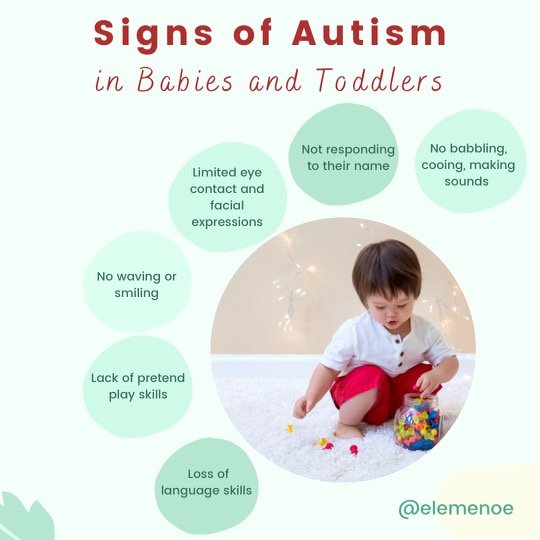
Signs of Autism in Babies: A Comprehensive Guide for Early Detection
Autism spectrum disorder (ASD) is a neurodevelopmental condition that affects a child’s ability to communicate, interact socially, and engage in repetitive behaviors. While the signs of autism can vary widely, there are certain behaviors that may indicate the presence of the disorder in babies. Early detection and intervention are crucial for improving outcomes for children with ASD, so it is important for parents and caregivers to be aware of the potential signs.
Early Signs of Autism in Babies
- Delayed or absent language development: Babies with autism may not start speaking or using words as early as their peers. They may also have difficulty understanding language and following directions.
- Lack of social interaction: Babies with autism may not make eye contact, smile, or respond to their name. They may also avoid social interactions with other children and adults.
- Repetitive behaviors: Babies with autism may engage in repetitive behaviors such as rocking back and forth, flapping their hands, or lining up toys. They may also have difficulty transitioning from one activity to another.
- Sensory sensitivities: Babies with autism may be over- or under-sensitive to certain sensory stimuli, such as loud noises, bright lights, or certain textures. They may also have difficulty regulating their body temperature.
- Unusual eating habits: Babies with autism may have unusual eating habits, such as eating only certain foods or refusing to eat certain foods. They may also have difficulty chewing or swallowing.
- Sleep problems: Babies with autism may have difficulty falling asleep or staying asleep. They may also wake up frequently during the night.
- Other signs: Other signs of autism in babies may include:
- Difficulty with motor skills, such as crawling or walking
- Lack of interest in toys or other objects
- Difficulty with self-soothing
- Irritability or tantrums
When to Seek Professional Help
If you are concerned that your baby may have autism, it is important to seek professional help as soon as possible. Early diagnosis and intervention can improve outcomes for children with ASD. Talk to your child’s doctor or a developmental specialist if you notice any of the signs of autism listed above.
Diagnosis of Autism in Babies
Diagnosing autism in babies can be challenging, as many of the signs of autism can also be seen in typically developing babies. However, there are certain diagnostic criteria that must be met in order to diagnose autism. These criteria include:
- Social communication deficits: The child must have difficulty with social interaction and communication, such as making eye contact, understanding language, or using words to communicate.
- Repetitive behaviors: The child must engage in repetitive behaviors, such as rocking back and forth, flapping their hands, or lining up toys.
- Restricted interests: The child must have a narrow range of interests and may be very focused on certain objects or activities.
Treatment for Autism in Babies
There is no cure for autism, but there are a variety of treatments that can help to improve symptoms and improve outcomes for children with ASD. These treatments may include:
- Early intervention services: Early intervention services can help to improve a child’s development in areas such as language, social skills, and motor skills.
- Speech therapy: Speech therapy can help children with autism to develop language skills and improve their communication abilities.
- Occupational therapy: Occupational therapy can help children with autism to develop motor skills and improve their ability to participate in everyday activities.
- Behavioral therapy: Behavioral therapy can help children with autism to learn appropriate behaviors and reduce problem behaviors.
- Medication: Medication may be used to treat certain symptoms of autism, such as hyperactivity or anxiety.
Prognosis for Autism in Babies
The prognosis for children with autism varies widely. Some children with autism may make significant progress with early intervention and treatment, while others may have more severe symptoms that require ongoing support. However, with the right support and services, children with autism can live full and productive lives.
Conclusion
Autism is a complex neurodevelopmental condition that can affect a child’s ability to communicate, interact socially, and engage in repetitive behaviors. While the signs of autism can vary widely, there are certain behaviors that may indicate the presence of the disorder in babies. Early detection and intervention are crucial for improving outcomes for children with ASD, so it is important for parents and caregivers to be aware of the potential signs. If you are concerned that your baby may have autism, talk to your child’s doctor or a developmental specialist as soon as possible.
